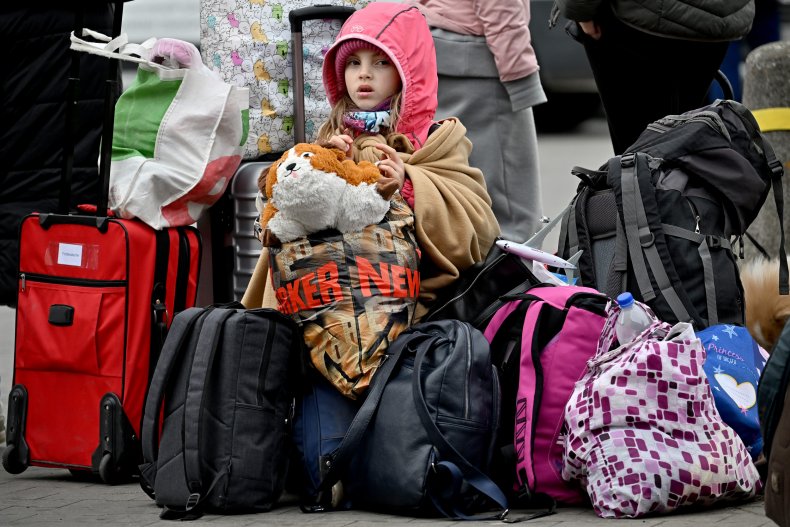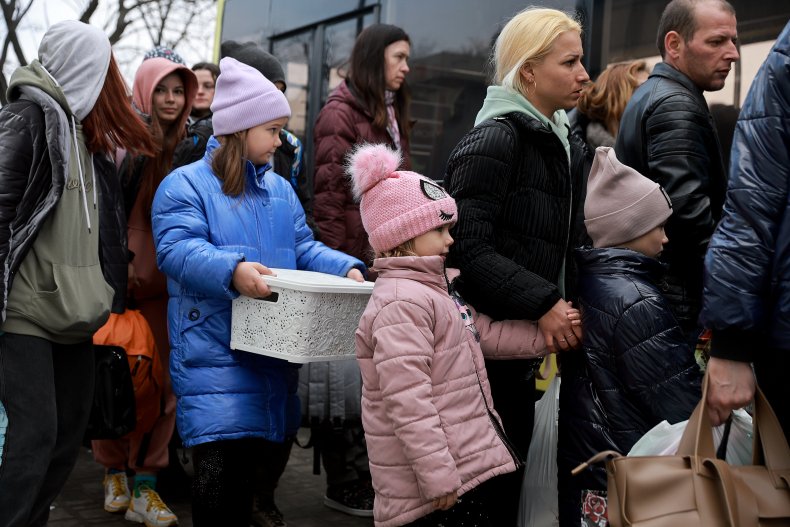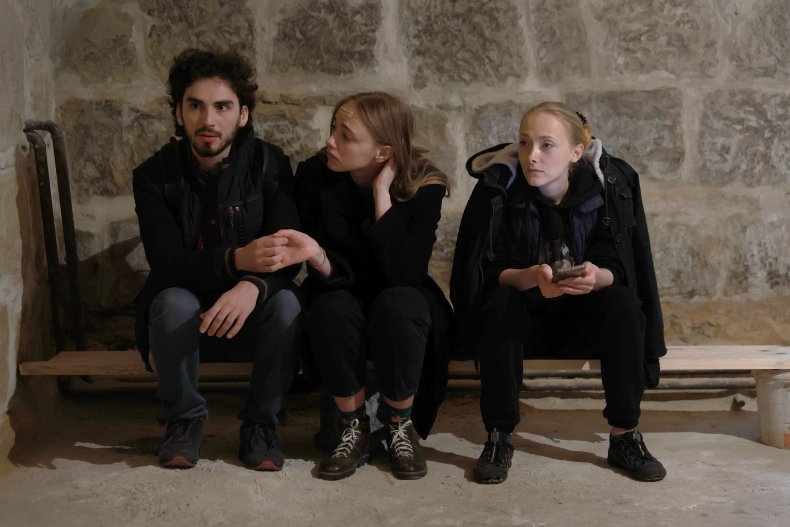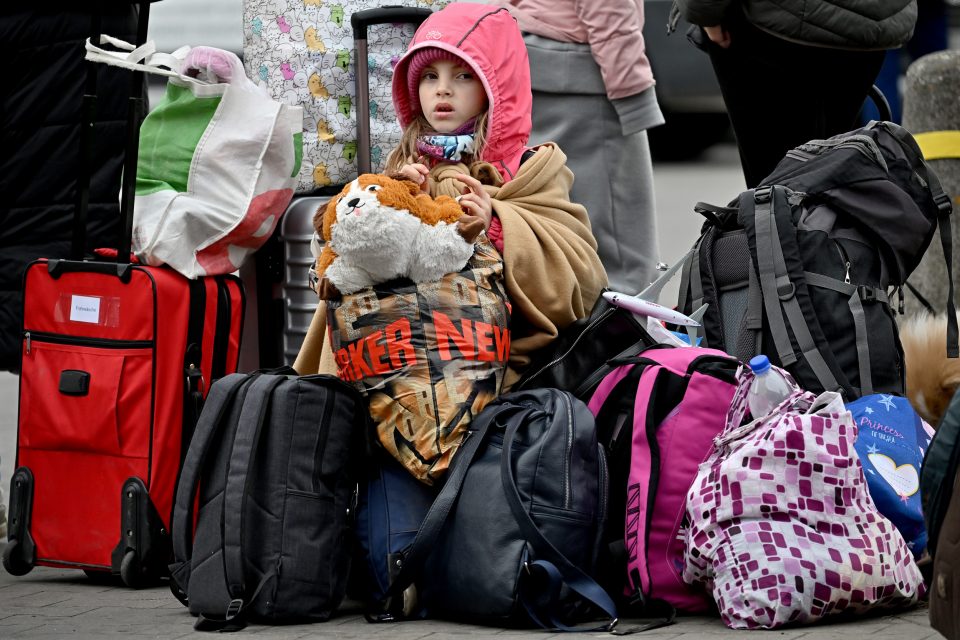Crucial medical supplies earmarked for Ukraine sat stranded in an Arizona warehouse for weeks after the war in the country destroyed the transport routes that charity workers relied on.
Although the shipping container is now on its way to Europe after a month of delays, it is likely to take even longer to reach desperate Ukrainians because of global supply chain disruption and port closures in Ukraine following Russia’s invasion.
Volunteers from Project C.U.R.E., which has been giving aid to Ukraine since the 1990s, were devastated when fighting closed the country’s port of Odesa—just as up to $1million worth of equipment was about to leave its warehouse in Tempe.
Project C.U.R.E. executive committee board member Charles Irion told local news site AZ Family: “It’s heart-wrenching for us to have the knowledge that what is sitting here could be saving lives there right now.”

Getty Images
Ruth Sanchez, the executive director of Project C.U.R.E. in Arizona, explained how a shipment had been scheduled only for the shipping company to back out at the last moment as the volatile situation escalated.
Speaking on February 26—two days after the Russian invasion began—she said: “We had been scheduled actually for two weeks, and we finally got a confirmation two days ago, ‘it’s going to be here,’ and overnight that changed, and the freight forwarder said we’re not comfortable sending anything to that region.”
Each 40-foot shipping container has between $250,000 to $1 million worth of supplies inside it, she said, such as x-ray machines, ultrasound equipment, syringes, wheelchairs, baby warmers and COVID-19 PPE.
Sanchez said she found it tough to see the containers stuck in a warehouse instead of being where they are desperately needed: “I’ve been seeing this equipment for… weeks and I myself have questioned, ‘Why is it sitting here?'”
Even the United Nations admitted it is struggling to get aid to those who need it because of heavy bombardments and roads blocked with land mines or burned-out vehicles.
On Friday, a spokesperson for the UN High Commissioner for Refugees, said agency workers were stuck and unable to provide aid: “They are blocked in these areas that are encircled or where the roads are now inaccessible… This has been one of the reasons why it’s so difficult to get to Mariupol.”
UN World Food Programme (WFP) spokesperson Tomson Phiri said Ukraine’s entire food supply chain system was “broken” with “trucks and trains destroyed, airports bombed, bridges fallen, supermarkets emptied and warehouses drained.”
He added: “The encircled city of Mariupol is running out of its last reserves of food and water. No humanitarian aid has been allowed into the city since it was encircled on 24 February. The only way to reach Mariupol is through humanitarian convoys which until now have not made it through.”

Getty Images
With the huge organizational might of the UN struggling to get aid to Ukrainians in need, smaller local groups in the U.S. have sought to find solutions.
Project C.U.R.E. finally arranged to get a shipment out by March 7, according to Phoenix news site Fox10. Heather Maher, Operations Director of Project C.U.R.E, said: “This container is getting to Ukraine through Poland. We had some extra room, so I was able to put trauma supplies, extra gauze, gloves, bags… Anything we can do to help those who are marginalized medically is a good feeling and this is a particularly good feeling because this is a country in so much need in this exact moment.”
However, due to the fighting and global supply chain chaos, the container could still take months to get there.
In the meantime, Project C.U.R.E. plans to begin gathering more supplies for future shipments.
Other humanitarian groups are focusing their efforts on neighbouring countries to help those fleeing over Ukraine’s border.

Getty Images
Project HOPE, another healthcare non-profit organization, says on its website: “Project HOPE’s response continues to expand in Poland, Moldova, and Romania, including support for a mobile medical team that is treating refugee children crossing the Ukraine/Moldova border.”
Islamic Relief says it does not have teams on the ground but has aid workers in neighboring countries. And the charity Mercy Corps says it has some crews on the ground in Ukraine, but others are also working from Romania and Poland.
Newsweek has reached out to Project C.U.R.E. for comment.


